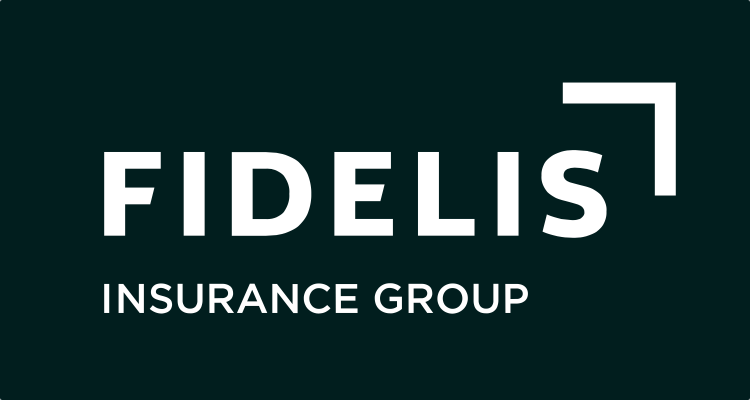Introduction
When you’re planning an international move, dental insurance probably isn’t the first thing on your checklist. But here’s the thing—neglecting dental coverage can be a costly mistake. From a cracked molar in Thailand to a surprise root canal in Germany, dental emergencies don’t wait for the right moment.
Whether you’re relocating for work, retirement, or adventure, you need to be prepared. Dental insurance for expats isn’t just about saving money—it’s about ensuring access to reliable, affordable care no matter where life takes you.
Why Dental Insurance Is Crucial for Expats
Living abroad means new food, different water, and sometimes even fewer dental regulations. Here’s why having dental insurance is a smart move:
-
Routine checkups matter: Preventive care helps you avoid bigger issues later.
-
Emergencies happen: Accidents or infections can strike unexpectedly.
-
Dental work can be expensive: Especially in places like the U.S., Australia, or Singapore.
Without insurance, something as simple as a cavity could turn into a major financial headache.
Common Dental Issues Expats Encounter
You might not expect your teeth to react differently abroad—but they do. Here’s what many expats face:
-
New diets and sugar levels: Local cuisines may contain more sugar or acids that increase the risk of decay.
-
Different water mineral content: This can affect enamel and gum health.
-
Delayed care: Expats often avoid seeing a dentist due to language barriers or uncertainty, making minor problems worse.
What Dental Insurance for Expats Typically Covers
Most plans include:
-
Preventive care: Cleanings, check-ups, and X-rays.
-
Basic treatments: Fillings, simple extractions.
-
Major procedures: Root canals, crowns, bridges.
-
Orthodontics: Often available as an add-on for adults or kids.
Cosmetic treatments (like teeth whitening or veneers) are usually excluded unless specified.
Understanding Dental Insurance Terminology
If you’re shopping for a plan, you’ll encounter these terms:
-
Annual coverage limit: The max amount your insurer will pay per year.
-
Deductible: The amount you must pay before insurance kicks in.
-
Waiting period: The time you must wait before coverage for certain procedures starts.
-
Direct billing: Clinics bill the insurer directly, so you don’t pay upfront.
-
Reimbursement: You pay first, then submit receipts for repayment.
Types of Dental Insurance Plans Available to Expats
There are a few options:
-
Standalone dental insurance: Great if you already have health insurance.
-
Dental as a rider: Often added to your global health policy.
-
Local plans: Sometimes cheaper but may limit care to your current country.
-
International plans: Offer global coverage—perfect if you travel frequently.
Top Dental Insurance Providers for Expats
-
Now Health International – Offers comprehensive dental cover with health insurance.
-
Cigna Global – Flexible add-on dental plans, wide global network.
-
Allianz Worldwide Care – Known for strong claim support and coverage options.
-
Bupa Global – High-tier coverage, great for families.
-
William Russell – Great dental add-ons with tiered options.
Each has different coverage limits and networks, so compare them carefully before choosing.
Key Features to Look for in a Dental Plan
-
High annual limits: $1,500–$3,000+ is ideal.
-
Short waiting periods: 6–9 months for major work is standard.
-
Wide dentist network: Especially important in rural or non-English speaking areas.
-
Clear reimbursement terms: Fast claims processing makes a huge difference.
-
Coverage for major treatments: Avoid plans that only handle cleanings.
Cost of Dental Insurance for Expats
Prices vary, but here’s a ballpark:
-
Basic plans: $25–$50/month
-
Comprehensive plans: $60–$150/month
-
Family plans: Start around $100/month and go up
Your age, location, and medical history can affect premiums.
Realistic Scenarios: Cost Without Insurance
-
USA: Root canal + crown = $2,000–$3,000
-
Thailand: Same procedure = $300–$600
-
UK: With NHS = lower, but long wait times
-
Germany: €500–€900, often reimbursed partially with private insurance
It’s easy to see how one treatment can exceed your annual premium.
How to File a Dental Insurance Claim
Most providers make it easy:
-
Get a detailed invoice from your dentist.
-
Submit a claim form (often online or via app).
-
Upload supporting documents (X-rays, receipts).
-
Wait for approval (usually 7–14 business days).
Tip: Use providers that offer direct billing whenever possible.
Can You Use Dental Insurance Internationally?
If you move countries frequently, you need a globally portable plan. Most international insurers let you:
-
Visit dentists across multiple countries
-
Get emergency care abroad
-
Maintain coverage even if you switch residence
Check if your plan restricts coverage to your country of residence.
Alternatives to Traditional Dental Insurance
If you’re not keen on monthly premiums, you can explore:
-
Dental discount cards: Get 20–50% off at participating clinics
-
Clinic memberships: Annual payment covers cleanings + discounts on procedures
-
Dental tourism: Travel to lower-cost countries (like Mexico, Turkey, Thailand) for care
Just make sure you account for travel costs, follow-ups, and risks.
When Is It Worth Paying Out-of-Pocket?
If you’re young, have good teeth, or live in a country with affordable dentistry—paying out-of-pocket might make sense. But for families, seniors, or people with past dental issues, insurance almost always pays off.
How to Choose the Right Plan for You
Ask yourself:
-
Do I have a history of dental issues?
-
Will I stay in one country or move around?
-
Do I need orthodontics or complex care?
-
What’s the quality and cost of local dental care?
Compare 2–3 providers before committing. Read the fine print.
Conclusion
Dental insurance might not be glamorous—but it’s one of the smartest investments you can make as an expat. It gives you peace of mind, helps you avoid surprise bills, and ensures you get the care you need—whether you’re sipping coconuts in Bali or navigating work life in Berlin.
Choose a plan that fits your needs, budget, and travel lifestyle. Your future self (and your smile) will thank you.
FAQs
1. Is dental insurance included in expat health plans?
Not always. Some global health policies include dental, but often it’s an optional add-on.
2. Can I buy dental insurance after moving abroad?
Yes, but many plans have waiting periods, especially for major procedures. It’s better to arrange coverage before your move.
3. How do I find an expat-friendly dentist?
Check expat forums, ask your insurer for in-network providers, or use apps like Doctolib or Zocdoc (depending on region).
4. Are cosmetic procedures like whitening covered?
Usually not. Most dental insurance excludes elective or cosmetic procedures unless specified.
5. Is there a waiting period for major dental work?
Yes, typically 6–12 months. Emergency care might be covered earlier, but planned procedures often require waiting.
Please don’t forget to leave a review.


